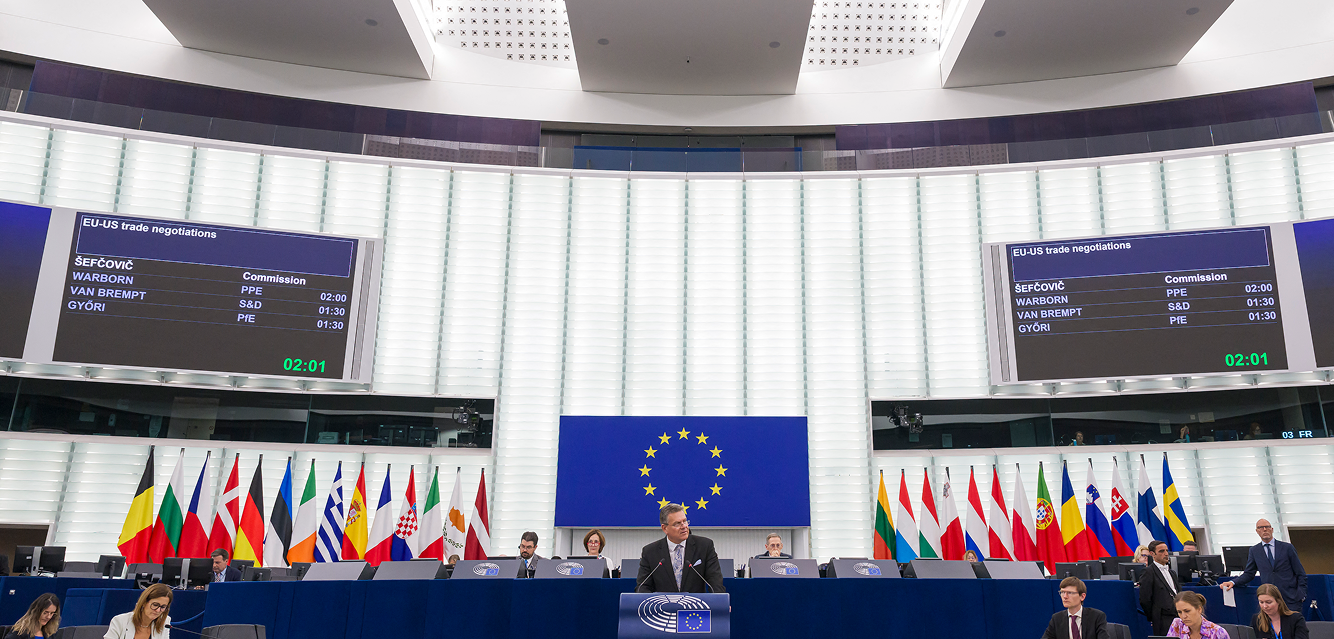The first meeting between the new Holy Father, Pope Leo XIV, and the Commission of the Bishops’ Conferences of the European Union (COMECE) took place in Rome this week, signalling the Vatican’s readiness to listen to Europe’s concerns.
On 7 August 2025, Bishop Nuno Brás da Silva Martins, Vice-President of COMECE and Bishop of Funchal, spoke to L’Osservatore Romano following the audience. “The very fact that the Pope received us in this first week is significant,” he said. “We already had an appointment with Pope Francis, but we did not expect Pope Leo XIV to take the initiative and confirm the meeting himself.”
According to Bishop Martins, Pope Leo began the encounter by admitting: “I do not have many answers, but I want to listen.” This, the bishop said, set the tone: “A Pope who listens, who is attentive, who asks questions and delves deeper.”
During the meeting, COMECE outlined its mission: monitoring European Union policy from its Brussels headquarters, particularly the work of the European Commission and Parliament. Four main issues were discussed — rearmament, Artificial Intelligence, migration, and baptismal records.
On rearmament, Pope Leo XIV expressed concern that Europe’s growing military expenditure could be “taken from social assistance,” undermining care for the continent’s poorest and most vulnerable. The Bishop of Funchal noted that this was not a call for naivety in defence, but a warning against sacrificing the social fabric on the altar of armaments.
Turning to the digital revolution, Bishop Martins said the Holy Father deliberately chose the name Leo XIV because “Leo XIII faced the industrial revolution; Leo XIV must face the digital revolution.” The Pope stressed that Artificial Intelligence must never override the dignity of the human person, nor be allowed to define truth on its own terms.
Migration was addressed with equal frankness. With nine million EU residents born abroad — including 4.5 million migrants — the bishops called for integration rooted in respect, not suspicion. “Migrants are human beings who knock on our door,” Bishop Martins said, warning against treating them as mere statistics or threats.
On baptismal records, the Pope noted legal cases in which individuals seek to erase their baptism from Church archives — disputes now before EU courts. Bishop Martins stood firm: “An event is an event and cannot be cancelled,” he said, defending the Church’s right to preserve the historical fact of baptism regardless of later disbelief.
The discussion also touched on moral legislation. On 5 August 2025, the Bishops of France had taken to the streets against euthanasia and assisted suicide. In this context, Bishop Martins warned that some in Brussels were attempting to push such laws beyond their remit: “The European Union cannot and should not impose the will of some on others. These are matters for each sovereign state.” He noted that Portugal’s euthanasia law remains partially unregulated due to constitutional challenges, adding, “Let us leave it as it is.”
